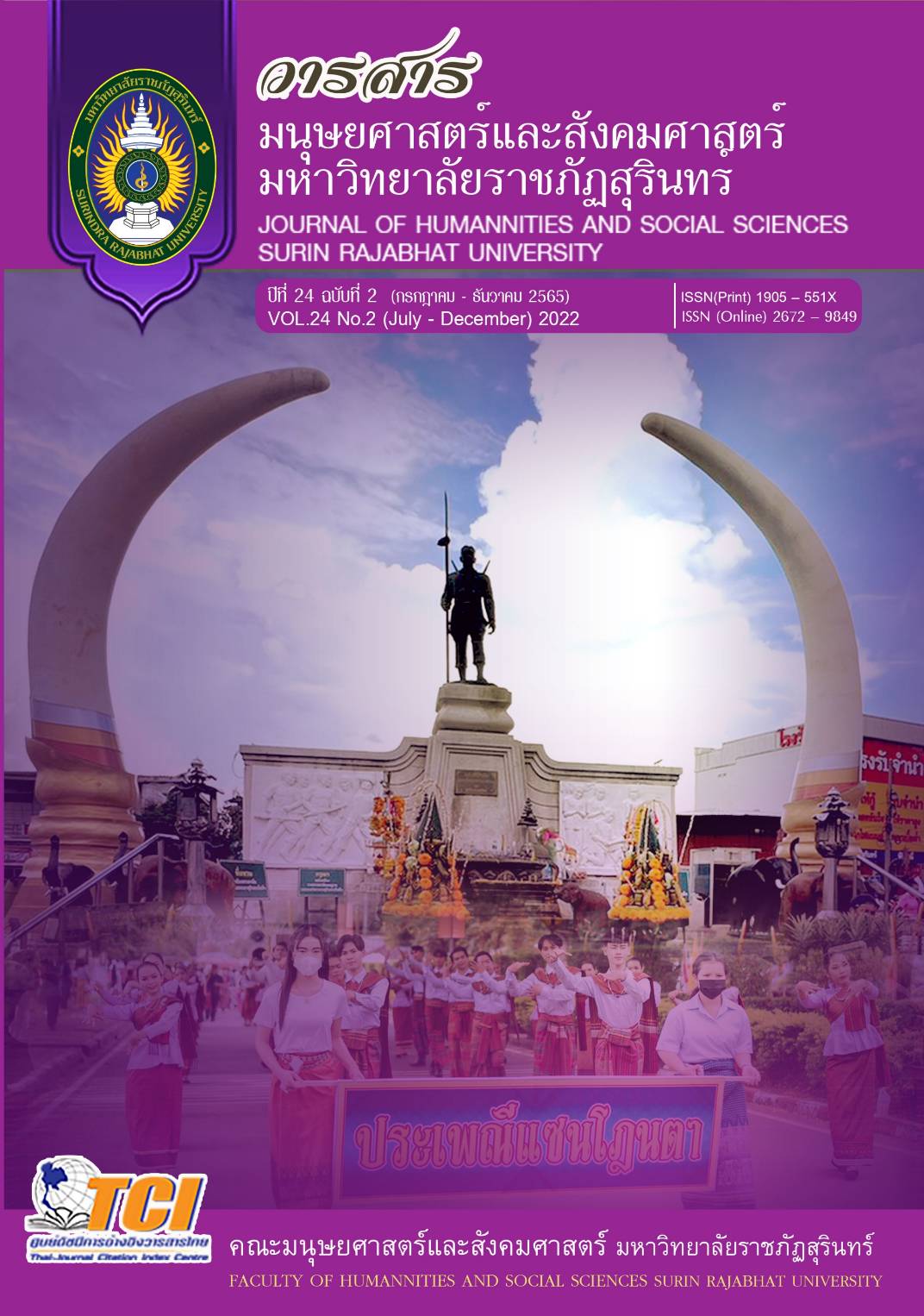The Development of an English Conversational Package for Thai Homestay Hosts
คำสำคัญ:
English for specific purposes, English training program, Homestay hostบทคัดย่อ
When it comes to English, one of the most common issues that Thai homestay hosts experience is a lack of exposure and practice. English is not commonly spoken in Thailand, and most Thais prefer to communicate in their native language. An English Conversational Package for Thai Homestay Hosts was developed to help them enhance their English skills. Therefore, the present study aimed to (i) develop an English conversational package for Thai homestay hosts and (ii) investigate the attitudes of Thai homestay hosts toward the English conversational package. The samples of the study were 30 Thai homestay hosts from Nong Khanna village, Phanom Dong Rak district, Surin province. They were chosen by the purposive sampling method. The research instruments used in this study comprised (i) semi-structured interviews for Thai homestay hosts, (ii) needs analysis questionnaires for foreign tourists, (iii) post-program questionnaire, and (iiii) facilitator’s log. The data were analyzed both quantitatively and qualitatively. The quantitative data were analyzed by using percentages, mean ( ), and standard deviation (S.D.) while the qualitative data were analyzed by content analysis.
The findings revealed that (i) the contents used in the developed English conversational package served the English learning needs of Thai homestay hosts at Nong Khanna Village, Phanom Dong Rak District, Surin Province for giving information to foreign tourists, and (ii) Thai homestay hosts had positive attitudes toward the developed English conversational package as well as agreed that the package provided the relevant English language functions to the contexts of Thai homestay hosts. In addition, the package was attractive in terms of font size, vocabulary, and Thai karaoke version. Despite the fact that the English training program using an English conversational package was only a two-day training, the samples revealed that they had more confidence in their own English-speaking skills at the end of the program, which could support the effectiveness of an English conversational package.











